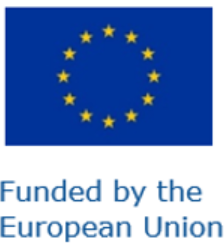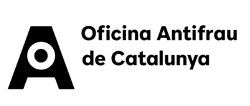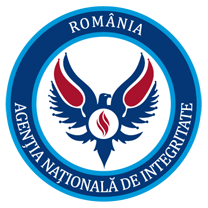Over the last few years, GTI has worked, either as an organisation or individually its team members, for globally relevant institutions such as the European Investment Bank, the European Bank for Reconstruction and Development, the European Commission, the Organisation for Economic Cooperation and Development, the UK’s Department for International Development, and Hivos of the Netherlands. We have also participated in research projects with top research universities such as the University of Oxford, the University of Cambridge, or University College London. Moreover, our engagement with civil society has been continuous in the last few years including partners such as the Open Contracting Partnership or Transparency International.
Selected projects:
Ongoing
iMonitor: Enhancing law enforcement efficiency by bringing together public procurement data analytics and civil monitors (1 May 2023- 30 April 2025)
Due to the lack of monitoring capacity, law enforcement is typically able to investigate a small portion of likely corrupt cases. To remove obstacles to corruption detection and investigation we set out to combine Big Data analytics with extensive civil monitoring of ongoing contracts in Catalonia (Spain), Italy, Lithuania, and Romania. We build on our prior EU-funded projects making public procurement data and corruption risk indicators available (opentender.eu) and a citizen reporting tool dedicated to monitoring public spending (monithon.eu).
We depart from other EU-funded projects, such as Integrity Pacts, by focusing on a larger number of more easily monitored projects (i.e. less complex, less technical). We create networks of civil monitors and law enforcement agencies to draw on civil society’s extensive reach and on-the-ground monitoring capacity. We create a dedicated reporting standard bringing together quantitative corruption risk indicators and detailed civil monitoring results to produce high-quality, targeted and operationally relevant reports for law enforcement and other public authorities. The direct impact of the project is to generate new investigations and other administrative responses to irregularities in contract implementation. Our intense monitoring activities send a powerful signal to corrupt organisations, likely resulting in a broader preventive impact. Sustainability of our networks and efforts is central to our approach. We build replicable and low cost skills development components in the project, supporting further monitoring.
Updates to opentender.eu and the Monithon civil monitoring platform will be key deliverables in the project. Opentender.eu will be available with more frequently updated public procurement data, additional public procurement integrity indicators and visualisation resources. Monithon.eu will be extended to include a reporting template for civic monitoring of contract implementation at the local level. Under the skill development component of the project, we will develop a training programme for local civil monitors, with manuals, guidelines, checklists and further training materials to be made available online for the general public as well.
GTI is the coordinator of the iMonitor project.
For more information see the iMonitor project website.
(Funding: European Commission – project number: 101103267 – Call: ISF-2022-TF1-AG-CORRUPT)







RESPOND – Rescuing Democracy from Political Corruption in Digital Societies (1 May 2024 – 30 April 2029)
Corruption and undue influences are not only linked to democratic discontent but compromise the quality of democracy. But how exactly does political corruption operate today? How deep can its negative impact on democracy go? And how can
anti-corruption efforts recover people’s support for democracy as a regime and promote their engagement with integrity and their refusal of undemocratic proposals and actions?
RESPOND addresses these critical challenges by offering a novel, interdisciplinary assessment of political corruption.
It does so by:
1) analyzing four contemporary and relevant forms of political influence (political finance, lobbying, revolving
doors/personal ties and media capture) to understand when they become troubling forms of influences connected to specific political corruption patterns; hence, undermining fair competition and broad participation in political decision-making
processes;
2) evaluating how political corruption is understood by political elites and citizens and is socially constructed through media and education, as well as its impacts on both democracy’s legitimacy and credibility and on responses to counter
them;
3) exploring how established and emerging digital technologies entangle with political corruption and how they improve anti-corruption and pro-integrity strategies at both national and crossborder levels;
4) engaging in co-creation with relevant stakeholders to design, test, and revise practices and tools, including new risk
indicators developed by RESPOND, to increase civic monitoring and integrity in current democracies.
Through a mixed-method research design, RESPOND investigates 27 EU countries and 11 neighbouring countries to signal ways to make governments, public officials, and political parties perform better ethically and recover democracy’s popularity.
GTI is a co-partner in the RESPOND project.
For more information see the RESPOND website.
(RESPOND is funded under the Horizon Europe Framework Program. Grant Agreement ID 101016127.)
FALCON – Fight Against Large-scale Corruption and Organised Crime Networks
(1 Sept 2023 – 31 August 2026)
FALCON is a three-year Horizon Europe research project in the field of anti-corruption. It addresses the significant challenges of the global fight against corruption by developing new, data-driven indicators and tools. FALCON follows an evidence-based, multi-actor and interdisciplinary approach. GTI is a co-partner in the FALCON project.
Scope
Big Data Integration: We collect and consolidate data from multiple administrative sources—including procurement records and asset declarations—into a unified data framework.
Evidence-Based Risk Analysis: Leveraging social science methodologies, we analyze corruption risks across various domains, such as public procurement. Our approach includes developing innovative risk indicators using NLP techniques applied to procurement texts and identifying high-risk suppliers by linking procurement and company datasets.
AI-Driven Information Extraction: Utilizing advanced AI methods, we develop tools for risk assessment, investigative support, and decision-making.
Practical Implementation: We collaborate closely with practitioners through co-design workshops, piloting and testing new data-driven investigative tools to enhance real-world effectiveness.
Ethical & Legal Considerations: We prioritize trustworthiness, ensuring that AI components comply with ethical guidelines, privacy regulations, and data protection standards.
Impact & Dissemination: FALCON’s findings are shared through academic and policy-focused conferences, as well as through the publication of policy briefs.
For more information see the FALCON website.
(FALCON is funded under the Horizon Europe Framework Program. Grant Agreement ID 101121281)
2024
Implementing shared anti-corruption and good governance solutions in Southeast Europe: innovative practices and public-private partnerships (Funding: EEA and Norway Grants, 2020-2024)
The project aims to deliver shared anticorruption solutions to increase the accountability of state institutions and strengthen civil society and the rule of law in SEE (Bulgaria, Croatia, Hungary, Romania, Albania, Bosnia and Herzegovina, North Macedonia, Montenegro, and Serbia).
The public-private partnership approach will allow target groups to share solutions across EU and non-EU borders in SEE, based on 4 pillars:
- Established Regional Good Governance Public-Private Partnership Platform (R2G4P) which will create a sustainable regional public-private partnership for shared good governance solutions.
- Increased capacity of public institutions and NGOs to diagnose and tackle corruption risks through 4 specialised three-day regional trainings for R2G4P members and annual summer school for 25 outside participants. The training modules will include: a) MACPI: Monitoring Anticorruption Policy Implementation; b) Opentender.eu: big data and network analysis to develop innovative risk indicators; and c) tackling state (policy, regulatory) capture and emerging corruption risks. Manuals will guide each module.
- Designed shared management and policy anti-corruption solutions, through producing annual SEE Good Governance Reports, each accompanied by 9 anticorruption reviews for public institutions, based on MACPI and opentender.eu methods.
- Communication and engagement strategy, including an opening conference, annual policy forums, and a closing summit.
Analysing the extent and cost of corruption in health and education in Uganda and Zambia (Funded by Deutsche Gesellschaft für Internationale Zusammenarbeit (GIZ), 2021-2024)
Uganda project (2021-22): Working with the GIZ and the Ugandan Inspectorate of Government, we conducted three studies on the extent and cost of corruption in Uganda. The first report provides a detailed estimation of nationwide costs of corruption risks in Uganda for 2019. It considers both direct costs attribuable to corrupt acts, and indirect costs resulting from corrupt acts through a series of interactions in the longer term. The report also established who bears the cost, such as citizens, firms, public budget, or society at large. This report was followed by two sectoral studies about the extent and cost of corruption risks in Uganda’s healthcare sector and education sector.
Zambia project (2022-23): The GIZ has been supporting Zambian state and non-state actors in inclusive governance, political participation, and enhanced access to justice for close to 7 years. Within the project ‘Enabling access to justice, civil society participation and transparency’ (EnACT), we will conduct a large-scale study on corruption in the education sector in Zambia by 2023 including a targeted survey and in-depth interviews. The overall objective of the project is to improve the access of the Zambian population to education and more broadly to accountable institutions, justice and transparent government decision-making processes.
Fighting corruption in the Water and Sanitation sector worldwide (Funded by Water Integrity Network, 2021-2024)
We employed a data-driven approach to develop a composite Water Integrity Risk Index (WIRI) made up of a host of objective proxy indicators as well as survey-based measures of corruption experience to identify and assess integrity risks in the W&S sector in selected urban areas around the world. Unlike broader-scope corruption indices, the WIRI developed in this project uses administrative datasets and survey data capturing information on corruptible transactions; thus, our analysis is micro-level, narrowly focuses on the W&S sector and is both transparent and replicable. The result is an actionable index which measures integrity risks over 9 countries between 2012 and 2021.
2023
Civil Society Advancing Beneficial Ownership Transparency – CSABOT (Funded by EU DG FISMA project, 2021-2023)
The project is implemented in partnership with Transparency International, Tax Justice Network (TJN), and with Transcrime of Università Cattolica de Sacro Cuore. GTI lead in the design and set up of a beneficial ownership database updated continuously during the project (the database includes articles about Beneficial Ownership registers, legislative data and BO registers meta-data for EU countries for the past 10 years). We are creating a publicly available ready-to-use database compiling and systematising both quantitative and qualitative data on beneficial ownership in Europe. The project involves actors from civil society in the fight against money laundering and terrorist financing, recognising the role that they can play in bringing about more transparency.
See the final report HERE
2021
Detecting cartel risks in public procurement data (Clients: Hungarian, Swedish Competition Authorities, 2013, 2016, 2018-2021)
GTI developed complex indicators to detect collusion risks among bidding firms in public procurement using detailed contracting and bidding data. Working for competition authorities across Europe such as the Hungarian or Swedish Competition Authorities led to the development of such a comprehensive and flexible measurement framework. Some of the most recent results not only fed into investigations in Sweden, but they also produced innovative, new collusion indicators applicable to a wide range of countries.
Currently, this project is further extended by a recent research grant from the Swedish Competition Authority for testing a set of general cartel screening methods which have the potential to be effective in different, large-scale datasets, in Sweden and across Europe. As we currently lack a comprehensive understanding of how different cartel screens perform in different contexts, this 3-year project will develop and test a comprehensive set of cartel risk indicators using proven cases. The resulting indicators will be applied to discover new cartels in large datasets, in Sweden and across Europe.
2020
IMF Anti-Corruption Challenge – The Corruption Cost Tracker (Funding: International Monetary Fund, 2020)
The Government Transparency Institute and FCDO UK team has won the first place in the IMF Anti-Corruption Challenge with its project: Public procurement corruption risks: Harnessing Big Data for better fiscal governance and growth. We collaborated with the IMF to deliver this innovative project and developed an intelligence tool, the Corruption Cost Tracker, which uses big data analytics and peer-reviewed methods to identify corruption risks in micro-level public procurement processes and estimate their impact on procurement prices (covering 33 countries from the Americas, Europe, Africa and Asia). You can read more about the tool and watch the presentation here.
2019
Curbing corruption in development aid-funded procurement (Funding: UK-DFID:ACE, 2016-2019)
GTI Director, Mihály Fazekas, is the co-Principal Investigator and GTI is the official consortium partner in two successive research projects called ‘Curbing corruption in development aid-funded procurement’ funded by the Department for International Development Anti-Corruption Evidence Programme. Related research projects in this funding stream, among others, are SOAS/ACE, Informal Governance, and Islands of Integrity. This research project has been collecting, standardizing, cleaning public procurement datasets from donors such as the World Bank and matching them up with national public procurement data from diverse countries such as Paraguay, Uganda, or India. Our research analyses how procurement can be manipulated for corrupt ends using the prize-winning ‘red flags’ methodology developed by Mihály Fazekas analysing the data to identify suspicious patterns and trends, by procuring entity, supplier, and over time. In addition, we test a series of anti-corruption interventions’ effectiveness in reducing corruption risks such as using electronic procurement to increase market competition.
Monitoring, Evaluation and Learning in Latin America (Client: Open Contracting Partnership, 2018-2019)
GTI has recently been awarded a contract by the Open Contracting Partnership (OCP) to provide consultancy services regarding OCP’s strategy in Latin America advocating for the use of Open Contracting Data Standard for public procurement data. The project supports three Latin American countries, Colombia, Chile, and Mexico, to articulate their use cases and explore why they want to implement open contracting, publish more and better open contracting information data to improve how open contracting is done, engage civil society in using the data, and measure the results of open contracting efforts.
The impact of transparency reforms (Client: Hivos, OCP, B Team, 2018-2019)
As there is a lack of rigorous evidence on the impact of large scale transparency interventions – such as introducing OCDS publication standards, this Hivos-OCP-BTeam-funded project investigates the effects of transparency reforms in public procurement and how they translate into lower corruption and increased competition using the cases of Slovakia, Paraguay, and Mexico. We aim to understand the channels through which transparency is indeed impactful – e.g. who are the stakeholders and enablers that are the actual drivers of change using increased transparency. Therefore, using before-after analysis we explore whether selected transparency interventions had any short to mid -term effects on the: i) level of competition (number of bids), ii) prices, iii) corruption risks. iv) institutional efficiency. Besides these three dimensions we also assess whether open contracting v) improves market access, vi) mitigates economic risk in procurement processes. Furthermore, we will also analyse whether transparency intervention has heterogeneous effects across region, buyer type, sector, and organisational quality. In other words, whether specific administrative features (e.g. well-staffed central government bodies vs. small municipalities) or more active stakeholders influence the effects of increased transparency.
State capture risks in defense procurement (Funding: Open Society Institute for Europe, 2017-2019)
The project aims to analyze state capture risks in the field of defense procurement among EU member states in 2009-2017 and to identify effective anti-corruption policies. We combine qualitative and quantitative research approaches to overcome research challenges in the defense sector, namely the low level of transparency due to specific procurement regulations. We build a database using TED and national public procurement data sources, while corruption risk indicator development will be combined with advanced network analysis and in-depth case studies. These methodologies provide validation of statistical results and a deeper understanding of defense spending and anti-corruption policies which work in controlling corruption in defense procurement. Building on our analytical work, we publicly release the data and indicators, develop an interactive online tool, and hold workshops and presentations to share findings with a wider audience.
2018
DIGIWHIST (Funding: EU Horizon2020, 2015-2018)
GTI has been a consortium member of the EU-funded research project called DIGIWHIST. DIGIWHIST collected and republished public procurement data from 32 jurisdictions in Europe. This involved data source mapping and annotations as well as indicator development, compiling and evaluate micro-level data using information from individual public procurement transactions and winning firms’ finance and ownership structures.
This data is linked to information on aggregate asset and income declarations data in order to detect potential conflicts of interest in the system of public procurement, and more specifically, to identify systemic vulnerabilities in the respective legislations and their implementation. Besides collecting, standardizing, and republishing more than 17 million public contracts, the team also worked on defining, validating, and analysing tender level corruption risk, transparency and administrative capacity indicators (see Open Tender). Thanks to generous seed funding from the Open Society Institute for Europe, the data collection, data cleaning, and indicator calculation work could be continued beyond the completion of DIGIWHIST.
2017
Quantitative corruption analysis in Tanzania (Funding: EPSRC Global Challenges Research Fund; Client: University of Oxford, 2016-2017)
Using publicly available data on public procurement contracts in Tanzania, a free software tool, R-Instat, is developed to help social scientists, local journalists, civil society organisations and other interested agents to uncover corruption patterns. GTI is responsible for data collection, data cleaning and data analysis and indicator development in this ongoing project. See the data publication here.